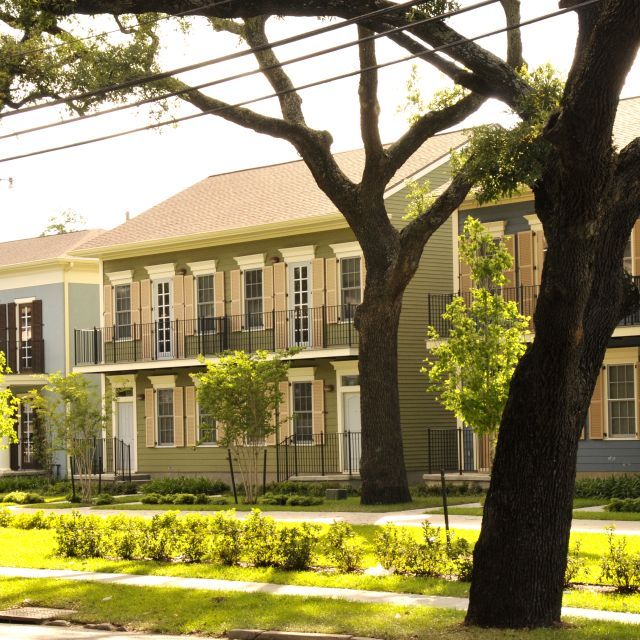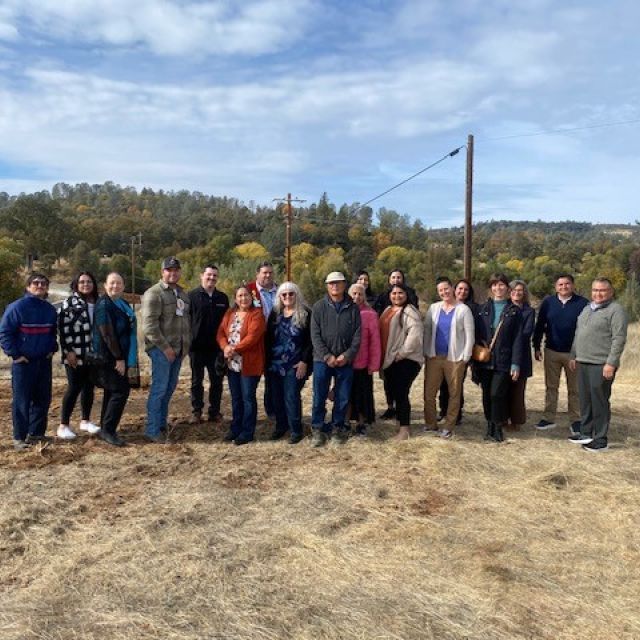Our team was thrilled to be reconnecting at panels and in the halls with old and new partners, enjoying the sun for a lunch break on the Yerba Buena lawn, and taking part in post-conference tours at the Non-Profit Housing Association of Northern California (NPH) Annual Conference on Oct. 3.
We all were inspired by the work to end housing insecurity and homelessness in California and the Bay Area, and are pleased to offer these highlights.
The Bay Area’s Affordable Housing Pipeline: Implications for Financing, Policy and Advocacy
Anaïse Jean-Philippe presented findings from the Bay Area Affordable Housing Pipeline on the regional readiness to build housing and the need for subsidies, tax credits and bonds to unlock the pipeline. In the Bay Area, there are 395 developments totaling 32,944 units in pre-development with an estimated subsidy gap of $7.6 billion. Kate Hartley from BAHFA, Consuelo Hernandez from Santa Clara’s Office of Supportive Housing, and Ben Wickham from Burbank Housing discussed the findings, the importance of a streamlined regional financing system and ways to support advocacy for regional housing bonds to move these projects to the finish line. For more on the pipeline, reach out to Anaïse Jean-Philippe.
Coalition Building for a Big Electoral Win in 2024
Geeta Rao was joined by Oakland Mayor Libby Schaaf and Matt Huerta and Ja’Nai Aubry from NPH to discuss the transformation housing opportunities on the 2024 ballot referred to as the California Housing Initiative. The California Housing Initiative is a dual strategy to change the California State Constitution to lower the voter threshold for general obligation housing bonds from a super majority to a simple majority and lay the groundwork for a $10- to $20-billion regional housing measure for the Bay Area. The panel discussed strategy, polling, voters support and opportunities to build coalitions and support across the state and in the Bay Area. Sign up to endorse the California Housing Initiative and reach out to Geeta Rao for more information.
Swinging at Solutions: Hitting the High-Cost Curveball
Moderated by Heather Hood, this panel explored how to bring down the cost of housing construction. David Garcia from UC Berkeley’s Terner Center for Housing Innovations shared the sobering data about the rapid spike in construction costs throughout California, especially in Bay Area, which has compounded the state’s shortage of affordable homes. The panel discussed pervasive and complicated barriers to production and shared innovative solutions. Lillian Lew-Hailer from Mercy Housing California described a partnership in Los Angeles in which three developers bundled an order for five projects totaling 398 units to Factory OS bringing down the costs of each project by 25%. Kathy Kleinbaum from City of San Mateo showcased the myriad of ways the city has addressed the high construction costs including revising income targeting requirements, deferring impact fees, waiving plan check fees, supporting off-site parking and allowing concurrent structure construction to create cost-efficiencies. Reach out to Heather Hood for more information.
Achieving our Regional Goals through Metropolitan Transportation Commission’s (MTC) Transit-Oriented Communities Policy
Amiel Leaño Atanacio moderated a panel on MTC’s new Transit-Oriented Communities (TOC) Policy, which encourages greater residential and commercial densities around high frequency transit, requires cities to adopt production, preservation and tenant protection policies, and encourages transit ridership by limiting parking requirements or, in some cases, eliminating them all together. Erika Pinto with SPUR, Mayor Giselle Hale of Redwood City and Kara Vuicich with MTC provided the advocate, local and regional perspectives on the challenges and opportunities for this new policy as the region turns toward implementation of this policy in the next two years. If you would like to get involved in ensuring the success of the TOC Policy, contact Justine Marcus.
Preserving Affordability, Preventing Displacement: A Practitioner's Guide to Making Preservation Deals Work
Caroline McCormack moderated a panel featuring Rebecca Foster of the Housing Accelerator Fund, Emily Busch of EBALDC, and Stephanie Reyes of HCD that dove the into the nitty gritty of acquiring, rehabbing, and stabilizing unsubsidized affordable homes to stem the tide of displacement of low-income households in the Bay Area. Panelists shared their lessons learned, and HCD provided a preview of the Foreclosure Intervention Housing Preservation Program (FIHPP), a new acquisition/rehabilitation $500 million funding source for one- to 25-unit buildings that will be available next year. Enterprise also announced the launch of Preservation Next, publicly available, no-cost virtual training sessions about preserving the affordability of homes located in unsubsidized small- to medium-multifamily properties and the preservation policies, programs and resources needed to advance preservation efforts. Register for the kickoff session here and learn more about upcoming sessions for 2022 and 2023.
Portfolio Investment: Paths to Recovery in the Face of Limited, Competitive Funding
In an environment of limited funding opportunities and ever-increasing construction costs, how do nonprofit developers stabilize existing buildings to advance resident stability, health, and well-being? Lauren Maddock of California Housing Partnership moderated a panel that tackled this question, and Caroline McCormack joined to talk about Enterprise's financing opportunities for preservation, including the Housing for Health Fund and Bay Area Preservation Pilot. The panel also featured insights for TNDC's created portfolio syndication strategies, and HCD joined to provide an overview of its Portfolio Reinvestment Program. Panelists remarked on the level of creativity and nimbleness required to make these projects work. To learn more, reach out to Caroline McCormack.
Transforming the PSH Ecosystem in the Bay Area and Statewide
Marc Tousignant participated as a panelist along with Tramecia Garner from Swords to Plowshares and co-chair of the Supportive Housing Provider Network, Consuelo Hernandez from the County of Santa Clara, and moderator and NPH Consultant Natalie Bonnewit to discuss the current permanent supportive housing (PSH) ecosystem and regional stakeholder convenings that the panelists are organizing that are focused on systemic change to sustain the PSH model over the long-term. This was a chance for our Southern California team to join Northern California peers to discuss common experiences and needs across geographies, relative to PSH operations and supportive services capacity, particularly in light of the use of coordinated entry and its focus on the highest acuity households in PSH. The session underscored the opportunity for coalition building and advocacy alignment in the field as we look to aggregate and advance solutions at a statewide level. To learn more, contact Marc Tousignant.



